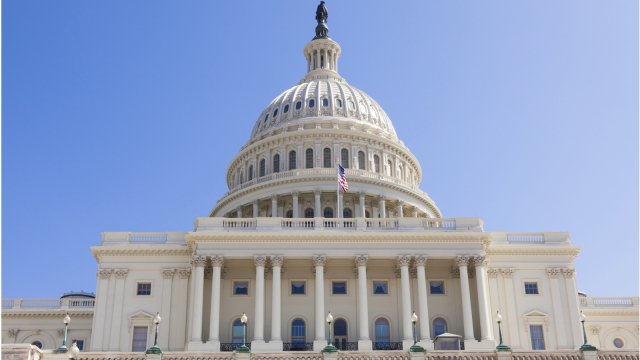NC Governor Cooper Proposes Yet Another HB2 Repeal Deal: Will NCGA Ever Follow Through?
Today, HRC and Equality NC responded to a new proposal announced today by North Carolina Governor Roy Coo…
Read moreDedicated To People, The Planet, and All Its Inhabitants – Since 1996

Today, HRC and Equality NC responded to a new proposal announced today by North Carolina Governor Roy Coo…
Read moreToday, HRC released the following statement following a vote of 12 to 6 by the Jacksonville City Council …
Read morePinkNews reported earlier this month that a pro-LGBTQ hashtag in Arabic has been trending in Saudi Arabia…
Read more

Today, HRC and the ACLU of South Dakota condemned a vote by the South Dakota Senate Health and Human Services Committee advancing discriminatory legislation targeting LGBTQ people and other minorities. Senate Bill (SB) 149 would enshrine taxpayer-funded discrimination into state law by allowing state-funded adoption and foster care agencies to reject prospective LGBTQ adoptive or foster parents based on the agency’s purported religious beliefs.
“This shameful attack on LGBTQ people could have serious intended and unintended consequences for those who call South Dakota home,” said HRC Legal Director Sarah Warbelow. “SB 149 would give state-funded adoption agencies a ‘license to discriminate’ with taxpayer money by refusing to place children in desperate need of loving homes with LGBTQ couples, single people, divorced people, or even those of a different faith. Decisions about prospective parents should be based on the best interest of the child, not on discriminatory factors unrelated to good parenting. The Senate should abandon this reckless proposal.”
“This bill works against the needs of vulnerable children in the foster care system in South Dakota by denying them access to good families and important services,” said ACLU of South Dakota Policy Director Elizabeth A. Skarin. “Our legislators must take a stand for all South Dakotans — and especially vulnerable children — and ensure that discrimination doesn’t get in the way of loving families seeking to provide homes for those who don’t have them.”
SB 149 would allow state-licensed and taxpayer-funded child-placing agencies to disregard the best interest of children, and turn away qualified South Dakotans seeking to care for a child in need — including LGBTQ couples, interfaith couples, single parents, married couples in which one prospective parent has previously been divorced, or other parents to whom the agency has a purported religious objection. The measure would even allow agencies to refuse to place foster children with members of their own extended families — a practice often considered to be in the best interest of the child. A qualified, loving LGBTQ grandparent, for example, could be deemed unsuitable under the proposed law. It would also allow agencies to refuse to provide appropriate medical and mental health care to LGBTQ children if the agency has a purported moral or religious objection to providing those services — and an agency couldn’t lose its license or contract as a result of subjecting a child to abusive practices like so-called conversion therapy if it claimed such “therapy” is compelled by religious belief.
Research consistently shows that LGBTQ youth are overrepresented in the foster care system, as many have been rejected by their families of origin because they are LGBTQ. These young people are especially vulnerable to discrimination and mistreatment while in foster care, and SB 149 would only exacerbate the challenges they face.
The attack on fairness and equality in South Dakota is part of an onslaught of bills being pushed in 2017 by anti-equality activists around the country. HRC is currently tracking more than 70 anti-LGBTQ legislative proposals in 22 states. For more information, visit http://hrc.im/2017legislature.
Read moreAn employee of MAC Cosmetics, customers were shocked — and bothered — to see Jeremy, a gay male, workin…
Read more

Today, HRC hailed comments from the National Basketball Association, warning Texas lawmakers that any legislative attack on LGBTQ people would factor into a decision as to where big-ticket games, such as the All-Star Game, would be played. The NBA joins the NFL in issuing a warning to lawmakers in Texas, after the National Football League cautioned last week that anti-LGBTQ legislation such as Texas’ SB 6 could affect Texas cities’ future bids for the Super Bowl.
“The NBA’s commitment to the safety, dignity and worth of its players, employees and fans is clear. It’s time for Texas to make the same commitment,” said JoDee Winterhof, HRC Senior Vice President for Policy and Political Affairs. “This weekend the city of New Orleans will celebrate an All-Star Weekend originally slated for Charlotte. Is that the kind of loss Texas lawmakers want to see? We hope that Texas lawmakers will heed this warning better than their North Carolinian counterparts did. Bills such as SB 6 are discriminatory, costly and wrong, and we are glad to see that the NBA and the NFL continue to stand on the side of equality and fairness.”
In July of 2016, the NBA pulled its 2017 All-Star Game from Charlotte, NC after North Carolina specifically because lawmakers refused to repeal the harmful, discriminatory HB2. Despite the NBA’s repeated warnings that it would have to consider moving the high-profile game out of the state if the anti-LGBTQ law was not repealed, the state’s General Assembly neglected to act to repeal HB2. The 2017 All-Star Game will be played this weekend in New Orleans.
In a statement, an NBA spokesperson said, “ensuring the environment where those who participate and attend are treated fairly and equally,” is a key factor in the league’s decision-making process when selecting sites for the All-Star Game and others. Last week, the NFL issued a similar statement, saying, “If a proposal that is discriminatory or inconsistent with our values were to become law there, that would certainly be a factor considered when thinking about awarding future events.”
SB 6 is a discriminatory, anti-transgender bill. The bill would overturn non-discrimination ordinances currently providing critical protections in several major Texas cities; further, it would force state agencies, municipalities, public schools and public universities to discriminate against transgender people. By making it illegal for transgender people in Texas to be afforded access to facilities consistent with their identity, it opens them up to increased discrimination and harassment as they simply live their everyday lives. It also exposes Texas to tremendous risk of the kind of financial, legal, and political blowback that North Carolina has continued to reckon with after the passage of HB2.
Read more

Efforts to decriminalize consensual same-sex sexual activity in Sri Lanka, an island state off the southern coast of India, appear to be gaining steam as the country negotiates a preferential trade deal with the European Union (E.U.). Sri Lanka is one of 72 countries around the world that criminalize same-sex acts.
Signing this kind of trade agreement with the E.U. generally requires compliance with certain human rights conditions, such as removing laws that discriminate against LGBTQ people. However, Sri Lankan LGBTQ activists are concerned that the E.U. has waived this requirement following objections by the Sri Lankan government.
All Out published a petition from activist Rosanna Flamer-Caldera calling on the European Parliament, which is debating the issue, to insist that Sri Lanka scrap anti-LGBTQ laws before the trade deal is signed. Flamer-Caldera is the head of Sri Lanka’s pioneering LGBTQ rights organization, Equal Ground, which she founded in 2004. In 2016, she participated in HRC’s inaugural Global Innovative Advocacy Summit, which brought together 26 established and emerging advocates for the exchange of ideas and practices for advancing LGBTQ equality.
The petition, which was published on Monday, had collected 35,000 signatures.
In an email to HRC Global, Flamer-Caldera stated, “LGBTQ rights have been systematically violated for 134 years in my country. The stance of the E.U. that the documented breaches of LGBTQ people’s human rights in Sri Lanka do not constitute a serious failure to observe international human rights standards is disturbing. Don’t our lives matter? Don’t we have the right to live as full citizens of this country?”
There are three specific discriminatory laws against the LGBTQ community in Sri Lanka. Section 365 (against the order of nature) criminalizes same-sex activity by up to 10 years imprisonment, Section 365 A (gross indecency) can put people convicted of same-sex acts behind bars for two to 20 years, and Section 399 is used by police to harass transgender and gender non-conforming people on grounds of impersonation. While these laws are applied infrequently, they nevertheless undermine the fundamental human rights and dignity of LGBTQ Sri Lankans and give carte blanche to authorities to violate the rights of LGBTQ individuals with impunity.
Activists in Sri Lanka have also faced other challenges in recent years. The 12th Colombo Pride event in 2016 received online threats from radical groups. They also faced difficulties in obtaining permission from Colombo municipality to celebrate an International Day Against Homophobia, Biphobia and Transphobia event last year.
HRC is committed to advocating for the rights of LGBTQ people in Sri Lanka, elsewhere in South Asia and around the globe. HRC Global advocates for equality through advocacy, fellowships, partnerships and research. Read more about our work here.
Read more
Only eight weeks into the 115th Congress, House Republicans are already pushing for special licenses to discriminate against LGBTQ people under the guise of religion.
Yesterday, the House Judiciary Subcommittee on the Constitution and Civil Justice held a hearing on “the State of Religious Liberty in America.” (“Religious liberty” is often code for allowing people to pick and choose which laws they will follow in order to discriminate against LGBTQ people.) The Republican majority’s witnesses included staff members of three anti-LGBTQ organizations: Kim Colby, Director of the Christian Legal Society’s Center for Law and Religious Freedom; Hannah Smith, Senior Counsel at the Becket Fund for Religious Liberty; and Casey Mattox, Senior Counsel at the Alliance Defending Freedom’s Center for Academic Freedom. The Democratic minority’s lone witness was Rabbi David Saperstein, former Director of the Religious Action Center of Reform Judaism and former Ambassador-at-Large for International Religious Freedom.
From the beginning of the hearing, it was clear that the Republicans and their witnesses would be using this hearing as an opportunity to, among other things, push for and defend policies that give people a license to discriminate against LGBTQ individuals. Subcommittee Chairman Steve King (R-IA), along with Judiciary Chairman Bob Goodlatte (R-VA) and Representatives Ron DeSantis (R-FL), Trent Franks (R-AZ), and Louie Gohmert (R-TX), pressed the witnesses and spoke about policies that would discriminate against minorities, including LGBTQ people. King specifically began his questioning of one of the Republican majority’s witnesses to spark a conversation in support of allowing businesses to use religion as an excuse to refuse service to LGBTQ people.
In their testimony and at the hearing, Republican witnesses called on Congress to pass the discriminatory First Amendment Defense Act and admonished restrictions on religious organizations from receiving public funds. They also called on President Trump to sign a “religious freedom’ executive order—which, if the recently leaked draft executive order is any indication, would target the LGBTQ community.
Thankfully, Subcommittee Ranking Member Steve Cohen (D-TN), along with Representatives Jamie Raskin (D-MD) and Jerry Nadler (D-NY) and Rabbi David Saperstein, questioned the constitutionality of the draft executive order. They also discussed how the Religious Freedom Restoration Act (RFRA), while originally intended to protect the rights of minority religions, has been distorted to be used as a blank check to discriminate or to impose their religious beliefs on others. That is why several civil rights groups, including HRC, support amending RFRA to make clear that it was never meant to be a tool for discrimination.
The Democratic line of questions and Rabbi Saperstein’s responses illustrated a clear understanding that religious liberty can be protected while also prohibiting discrimination against LGBTQ people. However, the Republican line of questions and the majority witnesses’ responses made clear that opponents of LGBTQ equality will continue to push their discriminatory agenda throughout the 115th Congress.
Read more
Post submitted by James Rector, HRC Arkansas Field Organizer with contributions by Michelle Palumbo, Arka…
Read moreToday, Senator Ben Cardin (D-MD) introduced the End Racial and Religious Profiling Act. The End Raci…
Read more